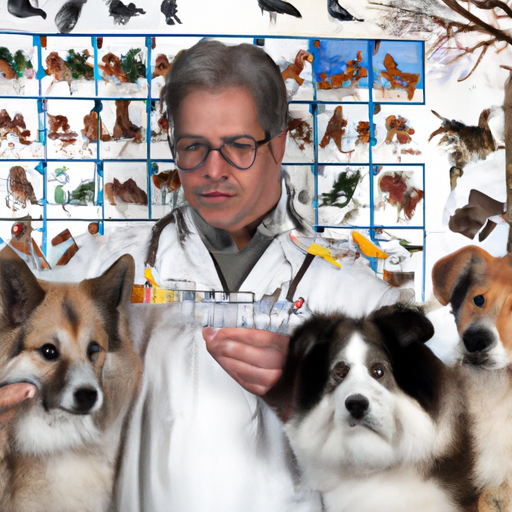If you’re a dog parent, you understand how much your furry friend means to you. You’re their caregiver, their protector, and their best friend. You want to ensure they’re healthy, happy, and safe. One essential aspect of maintaining your dog’s health is keeping up with their vaccinations. In this guide, we’ll dive deep into the various shots your dog needs annually.
Understanding Dog Vaccinations
Vaccinations play a crucial role in preventing many common and potentially fatal diseases in dogs. They work by preparing your pup’s immune system to defend itself against any invasion of disease-causing organisms.
Vaccines contain antigens, which mimic disease-causing organisms but don’t cause any illness, and stimulate the immune system’s production of antibodies. Later, if your dog is exposed to the actual disease, their immune system is now prepared to recognize and combat it.
Core and Non-Core Vaccines
The American Animal Hospital Association (AAHA) has divided vaccinations into two categories:
- Core vaccines
- Non-Core vaccines
Core Vaccines
Core vaccines are those that should be given to every dog. They are critical for all dogs regardless of their location, lifestyle, or breed.
The core vaccines include:
- Distemper: A highly contagious and potentially deadly disease that impacts a dog’s respiratory, gastrointestinal, and nervous systems.
- Parvovirus: A highly infectious viral disease that can cause severe gastrointestinal illness.
- Canine Hepatitis: A liver disease caused by a virus that is similar to the distemper virus.
- Rabies: A fatal disease that can be transmitted to humans.
Non-Core Vaccines
Non-Core vaccines are optional and should be considered based on your dog’s risk of exposure, lifestyle, and geographical location.
Non-Core vaccines include:
- Bordetella Bronchiseptica: Commonly known as kennel cough, it causes coughing and vomiting.
- Leptospirosis: A bacteria that can cause kidney damage and liver disease.
- Lyme Disease: A tick-borne illness that can cause fever, arthritis, and lameness.
Vaccination Schedule
Your veterinarian will determine the best vaccination schedule for your dog. This depends on the type of vaccine, your dog’s age, medical history, environment, and lifestyle.
For puppies, the initial series of core vaccines are typically administered at six, nine, twelve, and sixteen weeks of age. Boosters are then given annually.
For adult dogs, boosters for core vaccines are generally given every year, while non-core vaccines are given every one to three years, depending on the specific vaccine and your dog’s risk factors.
The following table illustrates a general vaccination schedule:
| Age | Vaccination |
|---|---|
| 6 weeks | Parvovirus |
| 8 weeks | Distemper, Parainfluenza |
| 10 weeks | MHLPi + Leptospirosis |
| 12 weeks | Rabies, Lyme |
| 14 weeks | DHLPi + Leptospirosis, Bordetella |
| 16 weeks | DHLPi + Leptospirosis, Rabies, Lyme |
| 12 months | DHLPi + Leptospirosis, Bordetella, Rabies, Lyme |
Potential Side Effects
Like any medical procedure, vaccinations can cause side effects. Most are mild and short-term, including mild fever, decreased appetite, and lethargy. More serious reactions, like allergic reactions, are rare but can occur.
FAQ
1. Can vaccinations make my dog sick?
Vaccinations can sometimes cause mild symptoms, like a slight fever or decreased energy. If your dog seems significantly unwell, contact your vet.
2. My dog is mostly indoors. Does it need all these vaccinations?
While an indoor lifestyle reduces your dog’s exposure to certain diseases, many contagious diseases are airborne and can easily affect indoor pets.
3. What should I do if my dog has a severe reaction to a vaccine?
Severe reactions are rare but can occur. If you notice any severe symptoms like difficulty breathing, facial swelling, or hives, contact your vet immediately.
Remember, as a caregiver, it’s your primary responsibility to ensure your furry friend’s health and well-being. Keep up with their annual shots and consult your vet for the best vaccination schedule. Your devoted companion relies on you for their health, and with the right care and precautions, you can help ensure they live a long, healthy life.



